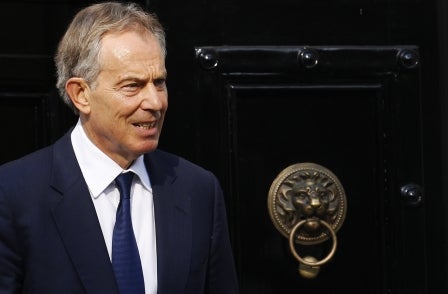
Media organisations have challenged the continuing restrictions on reporting a terrorism trial which was held in conditions of unprecedented secrecy.
A lawyer representing a number of broadcasters and newspaper publishers told three judges at the Court of Appeal in London that the case "raises important issues about the constitutional principle of open justice".
The appeal, being heard by Lord Chief Justice Lord Thomas, Lady Justice Hallett, and Lady Justice Sharp, centres on what should now be allowed to be reported of the Old Bailey trial of law student Erol Incedal.
Incedal, 27, of south-east London, was acquitted earlier this year of plotting with a terrorist in Syria either to target individuals such as former prime minister Tony Blair or carry out a ''Mumbai-style'' outrage using a Kalashnikov.
Much of the trial was in private, with only a small group of journalists being allowed to attend but barred from reporting on anything they saw or heard.
In addition, parts of the trial were held in secret, with the press as well as the public excluded.
Media organisations argue that now the trial is over they should be allowed to report what was said during the private sessions of the trial.
Anthony Hudson QC, making submissions on their behalf today, said: "We submit that this appeal raises important issues about the constitutional principle of open justice in circumstances where the state has sought secrecy in criminal proceedings on the grounds of national security.
"In particular, it requires the court to consider the extent to which secrecy is appropriate after the conclusion of a criminal trial involving allegations of terrorism."
Incedal was cleared of planning a gun attack at the end of a re-trial, but he was jailed for three-and-a-half years on 1 April for possessing a bomb-making manual on a memory card he had at the time of his arrest in October 2013. He was convicted of that offence last year.
His friend Mounir Rarmoul-Bouhadjar, who had admitted having an identical document, was jailed for three years by trial judge Mr Justice Nicol – who rejected a media application for the reporting restrictions which had covered the parts of the trial which were held in private to be lifted.
It is that ruling of Mr Justice Nicol, made on 1 April, which is now under challenge at the Court of Appeal.
The media argue that the judge was wrong to hold that the restrictions had to stay in place, and that the end of the trial meant that the sole justification for the reporting restrictions – that reporting could seriously prejudice the administration of justice – had now gone.
Incedal had admitted in evidence heard in open court that he had the document on a memory card, but had argued that he had a reasonable excuse for having it and so was not committing an offence.
But the jury heard the basis for his belief that he had a reasonable excuse during the private sessions – and those reporters who were present are currently banned from reporting that information.
Media organisations also argue that there is substantial and genuine public interest in reporting of the matters that lay at the heart of the prosecution's case against Incedal, and that without such reporting the public is left unable to understand the real issue at the trial, and the reason for his acquittal on the main charge.
The Crown had sought complete secrecy for the trial – with Incedal and Rarmoul-Bouhadjar being kept anonymous – but lawyers for the media mounted a successful challenge at the Court of Appeal last year.
Appeal judges lifted the anonymity, saying the defendants should be named, and declared that while the ''core'' of the trial could be held in secret it must start and end in public.
The hearing was adjourned until tomorrow, when the court is expected to reserve its decision.
Email pged@pressgazette.co.uk to point out mistakes, provide story tips or send in a letter for publication on our "Letters Page" blog







